By Bahar Gidwani
The 2016 Newsweek Green Rankings were released last week. Our friends at Corporate Knights Capital and HIP Investor again provided the underlying data behind the list.
We probably get more questions about Green Rankings and the radical changes in position that seem to occur each year, than for any of the 461 different rating systems we track. The table below shows the changes in position on the list that five companies experienced over the past three years. Some of this variation may be due to changes that Newsweek has made in the way its scores are calculated and for 2013 to 2014, changes in its data providers. (Last year’s list was driven by the same providers but there were several changes made prior to this.) Some variation may be due to actual changes in the performance of the companies on the list and the relatively narrow scope of the study. (CSRHub currently tracks the sustainability performance of more than 16,000 companies.) Finally, the Newsweek Green Rankings are meant to assess and measure environmental performance. Most other ranking systems cover a broader set of sustainability metrics.
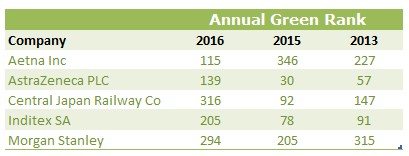
Newsweek’s scores correlate reasonably well with the aggregate score we generate from the views of the rest of the ESG ratings space. (We use a small amount of Corporate Knights information and share a data provider with HIP. But, we probably less than 3% of our data set with them.) As you can see below, the Newsweek ratings have about a 50% correlation with CSRHub’s ratings for each set of companies.

However, even with this degree of correlation, there is a relatively poor agreement between the companies CSRHub would choose on Newsweek’s list of 500 companies as the best or worst performers and the companies on the Newsweek lists. (Note that the rest of the analysis in this post focuses on the Global Rankings. However, we found similar results for the US Rankings.)
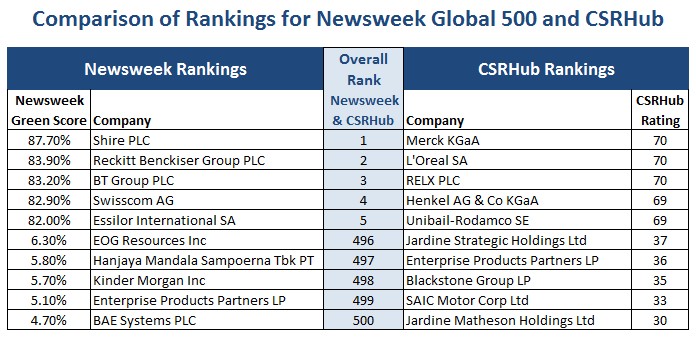
We dug in a bit more to see if we could explain what might be driving these variation at each extreme. A correlation between the Newsweek rating and CSRHub’s four category ratings shows that Newsweek’s score as expected is most closely tied to CSRHub’s environment rating. There is also a connection with CSRHub’s Employee and Governance ratings. However, there is no statistically supported connection with CSRHub’s Community rating, which includes the three subcategories of Product, Community Development & Philanthropy, and Human Rights & Supply Chain.
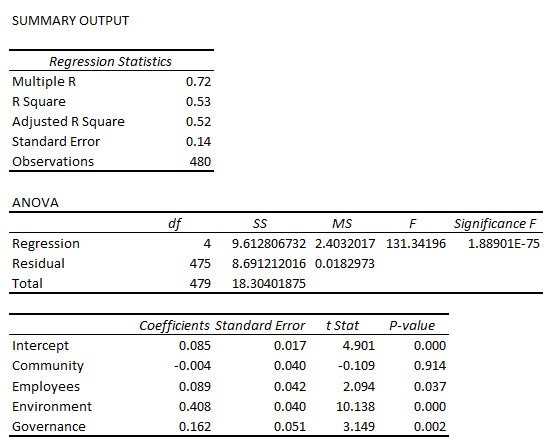
The coefficient for the Environment component of this regression is 2.5X bigger than that for Governance and 4.5X bigger than the effect of Employees. Still, top Newsweek companies probably need to perform well on at least the “E” and “G” parts of ESG. The Social “S” part though—Employee and Community issues—has only a weak effect. This would lead us to predict that some of the difference in rank between Newsweek and CSRHub is driven by differences in these factors.
As you can see below, the top CSRHub companies have average Community and Employee ratings that are 14% and 11% respectively above the average for the top Newsweek companies. The opposite is true for bottom-ranked companies.
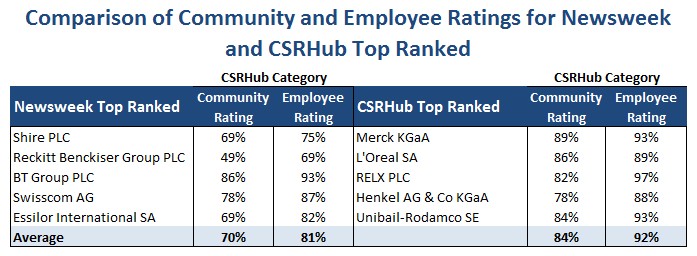
The companies who moved up this year are likely to trumpet their success. Those who moved downward may be able to argue that their overall performance didn’t really change—they only changed emphasis from E and G factors, into the S (Social) area.
 Bahar Gidwani is CEO and Co-founder of CSRHub. He has built and run large technology-based businesses for many years. Bahar holds a CFA, worked on Wall Street with Kidder, Peabody, and with McKinsey & Co. Bahar has consulted to a number of major companies and currently serves on the board of several software and Web companies. He has an MBA from Harvard Business School and an undergraduate degree in physics and astronomy. He plays bridge, races sailboats, and is based in New York City.CSRHub provides access to the world’s largest corporate social responsibility and sustainability ratings and information. It covers over 16,000 companies from 135 industries in 132 countries. By aggregating and normalizing the information from 461 data sources, CSRHub has created a broad, consistent rating system and a searchable database that links millions of rating elements back to their source. Managers, researchers and activists use CSRHub to benchmark company performance, learn how stakeholders evaluate company CSR practices, and seek ways to improve corporate sustainability performance.
Bahar Gidwani is CEO and Co-founder of CSRHub. He has built and run large technology-based businesses for many years. Bahar holds a CFA, worked on Wall Street with Kidder, Peabody, and with McKinsey & Co. Bahar has consulted to a number of major companies and currently serves on the board of several software and Web companies. He has an MBA from Harvard Business School and an undergraduate degree in physics and astronomy. He plays bridge, races sailboats, and is based in New York City.CSRHub provides access to the world’s largest corporate social responsibility and sustainability ratings and information. It covers over 16,000 companies from 135 industries in 132 countries. By aggregating and normalizing the information from 461 data sources, CSRHub has created a broad, consistent rating system and a searchable database that links millions of rating elements back to their source. Managers, researchers and activists use CSRHub to benchmark company performance, learn how stakeholders evaluate company CSR practices, and seek ways to improve corporate sustainability performance.
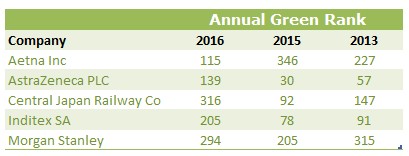
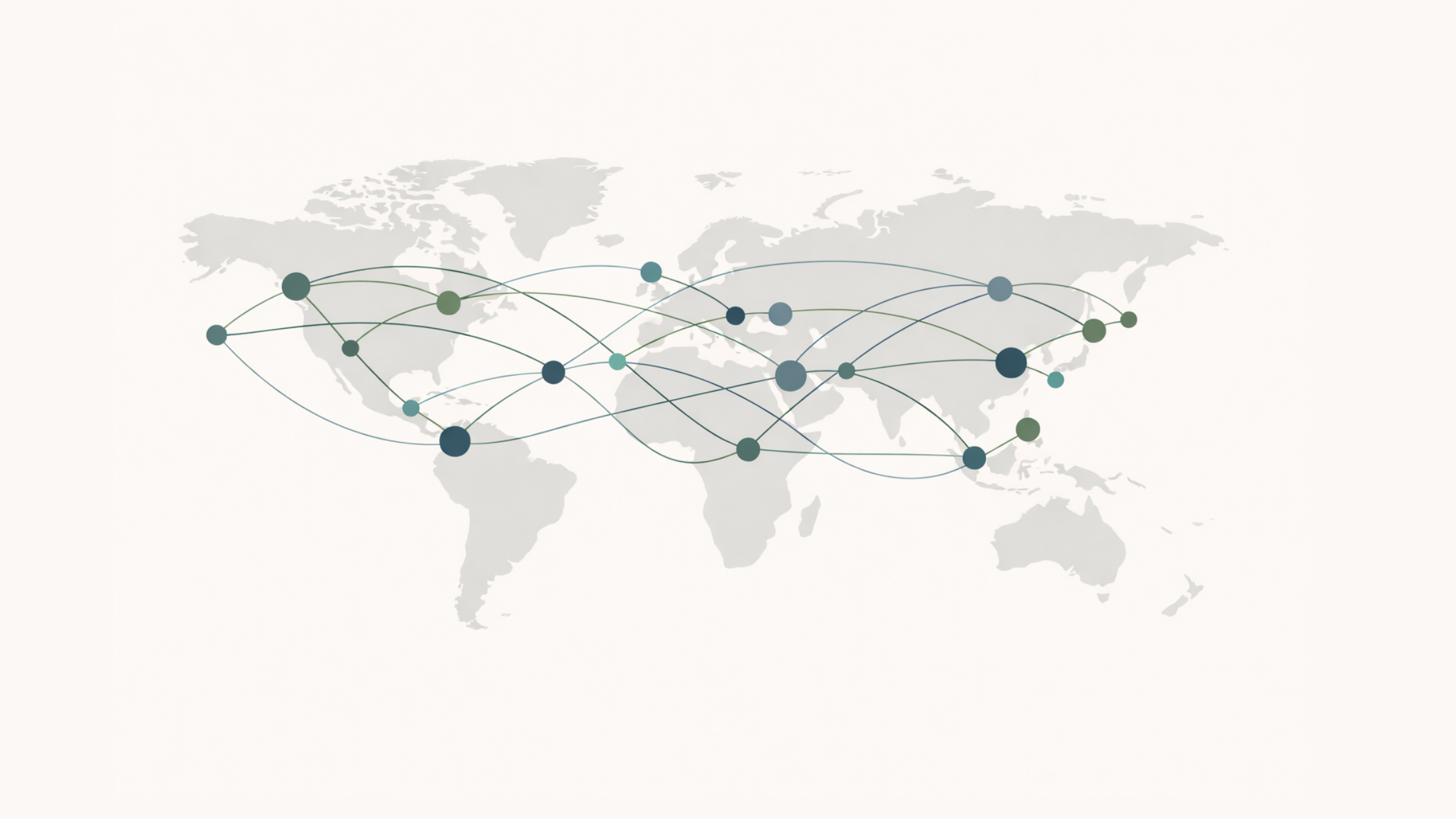
.png)
